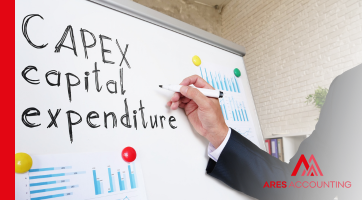The realm of corporate finance is a complex labyrinth of terminologies and concepts. In this maze, the term “CapEx” shines like a precious gem. What does this mysterious acronym represent? What role does it play in corporate accounting? How do Capital Expenditures (CapEx) differ from other expenses? This article will guide you through the intricacies of this topic, providing a deep understanding of CapEx, its accounting treatment, strategic impact, and limitations. Let’s explore everything you need to know about Capital Expenditures.
Understanding CapEx in Depth
Capital Expenditures, commonly known as CapEx, form the financial cornerstone of investments in assets with a useful life extending beyond one year. These investments encompass the acquisition of various long-term assets, including tangible assets such as industrial machinery or a state-of-the-art office building, as well as intangible assets like intellectual property and patented software solutions.
It’s important to note that specific categories of CapEx can vary significantly from one industry to another. However, a crucial aspect to understand is that these expenses are not limited to acquiring fixed assets alone. They also include financial allocations aimed at expanding the business, upgrading outdated equipment, and extending the operational lifespan of existing assets, whether tangible, like machinery, or intangible, like a patented software upgrade.
CapEx on the Balance Sheet: Accounting Mechanics
In the field of accounting, CapEx plays the role of an asset, typically highlighted on the balance sheet, specifically in the “Property, Plant, and Equipment (PP&E)” category. It also prominently appears in the “Investing Activities” section of the company’s cash flow statement. As an asset, it undergoes a process of gradual depreciation over time, based on its anticipated useful life.
Strategic Imperative of Capital Expenditures
The significance of Capital Expenditures becomes palpable when delving into their impact. CapEx initiatives are instrumental in expanding a company’s asset portfolio, significantly contributing to sustained revenue growth and elevating a company’s competitive position. It’s worth noting that Capital Expenditures differ from Operational Expenses (OpEx) as they do not allow for immediate tax deductions. Nevertheless, the depreciation of these CapEx assets leads to a cumulative increase in the overall value on the balance sheet. Therefore, this can translate into a significant rise in the company’s valuations over time.
Ultimately, for companies aspiring to increase profits and attract potential investors, Capital Expenditures represent a compelling strategy. They provide a gateway to enhanced long-term capital allocation efficiency compared to OpEx.
Deeper Dive: Nuances and Potential Limitations
While CapEx presents a multitude of strategic benefits, it’s essential to recognize associated considerations and limitations. These expenses come with substantial initial costs, often require a long-term commitment that may involve financing, and significantly do not guarantee assured Return on Investment (ROI). Simultaneously, poor decisions regarding CapEx investments can be complex to reverse, potentially resulting in absorbing significant losses.
Exploring CapEx in Real-World Scenarios
To fully grasp the realm of Capital Expenditures, it’s instructive to consider specific examples where these expenses manifest. These examples range from acquiring a new company vehicle to purchasing a cutting-edge office building or advanced industrial equipment, to acquiring real estate or land for commercial purposes. Each of these examples illustrates the application of CapEx principles in diverse contexts.
It is undeniable that Capital Expenditures (CapEx) are a fundamental pillar in the development and valuation of businesses. Their accounting treatment, influence on growth, and strategic nuances make them an essential area for executives and investors. However, it’s equally important not to overlook Operational Expenses (OpEx), which have a significant impact on profitability. In an upcoming article, we will delve deeper into the complex universe of OpEx, providing a comprehensive view of financial management in business. Stay tuned to enhance your financial knowledge.


